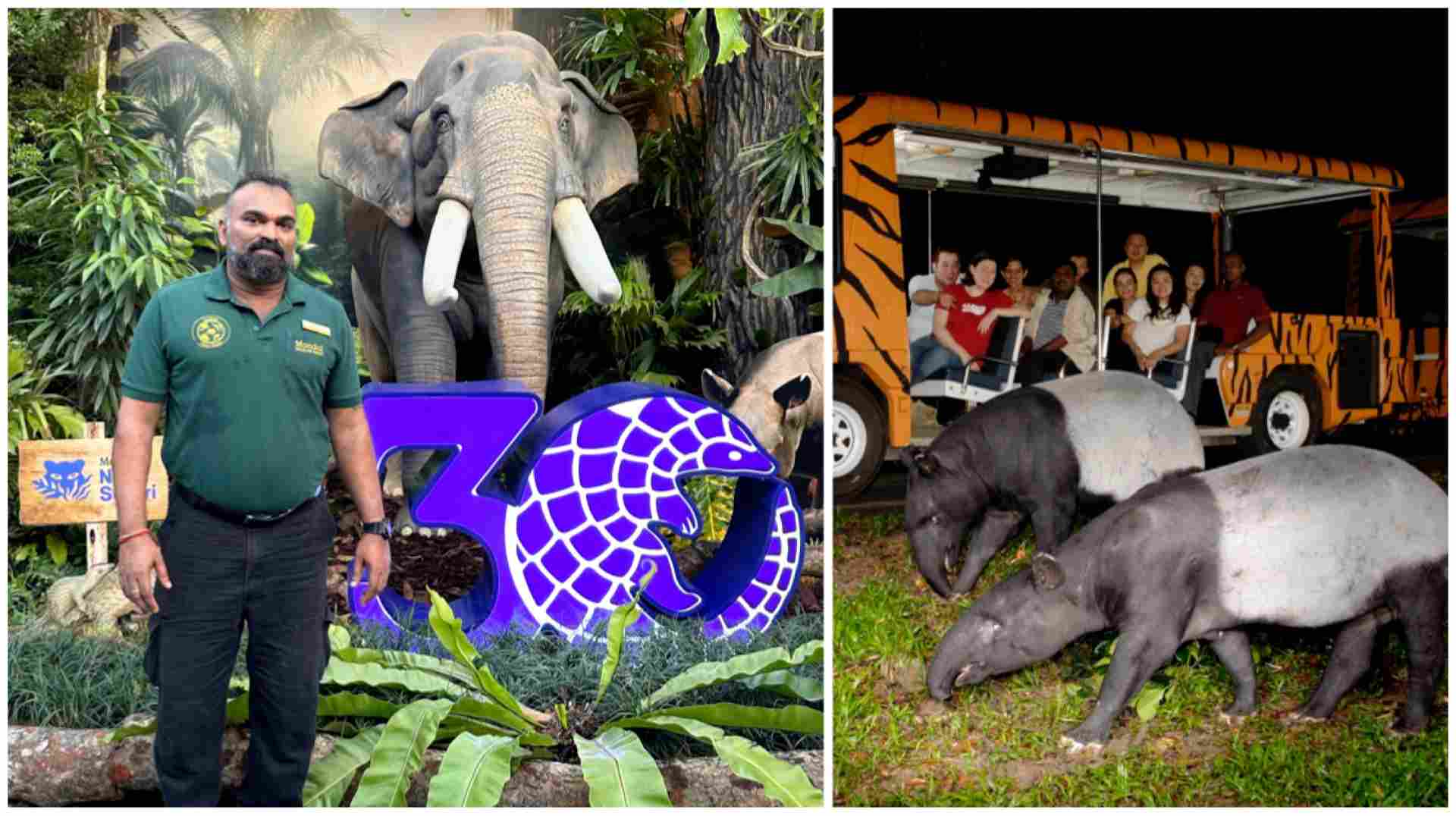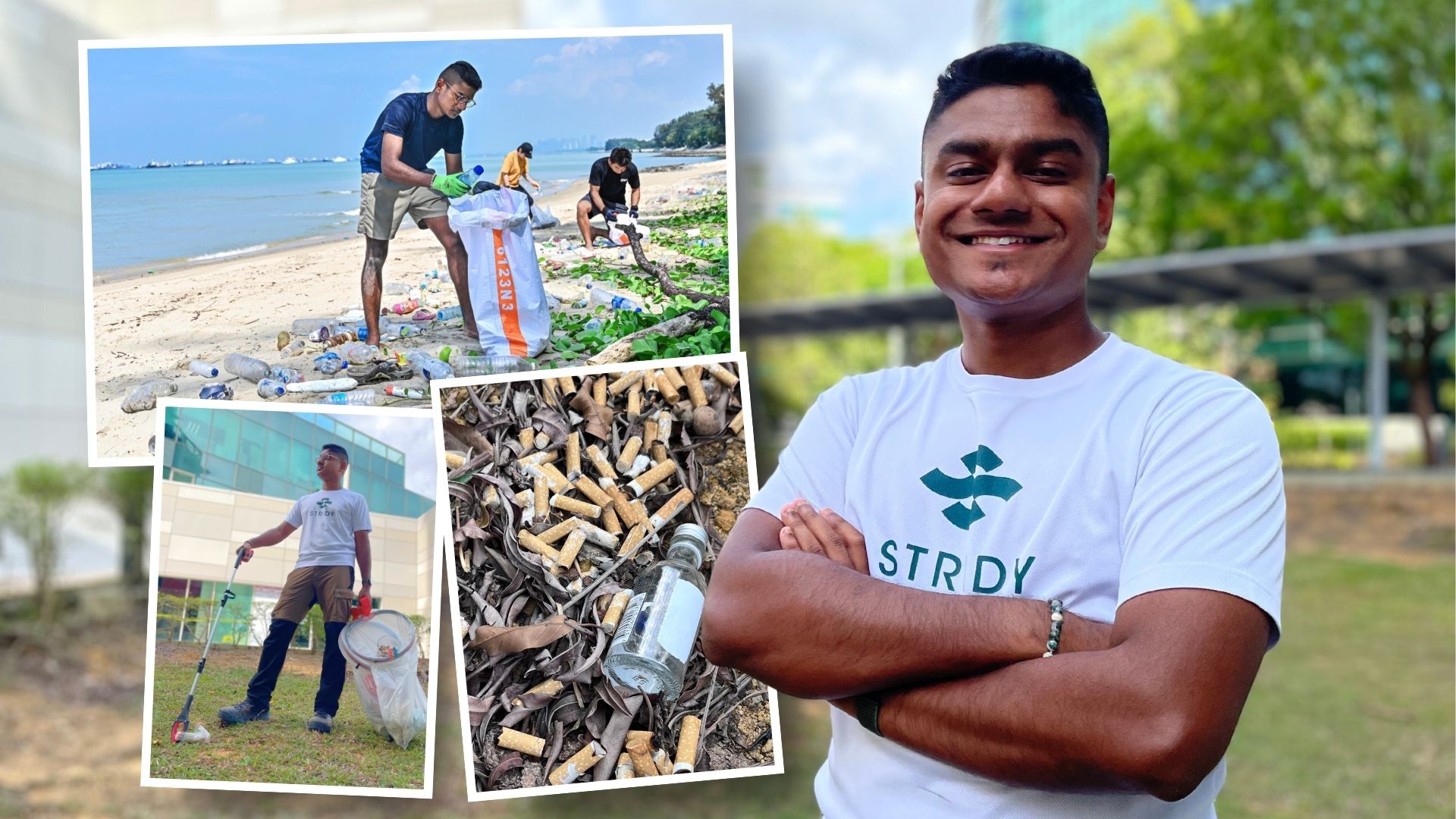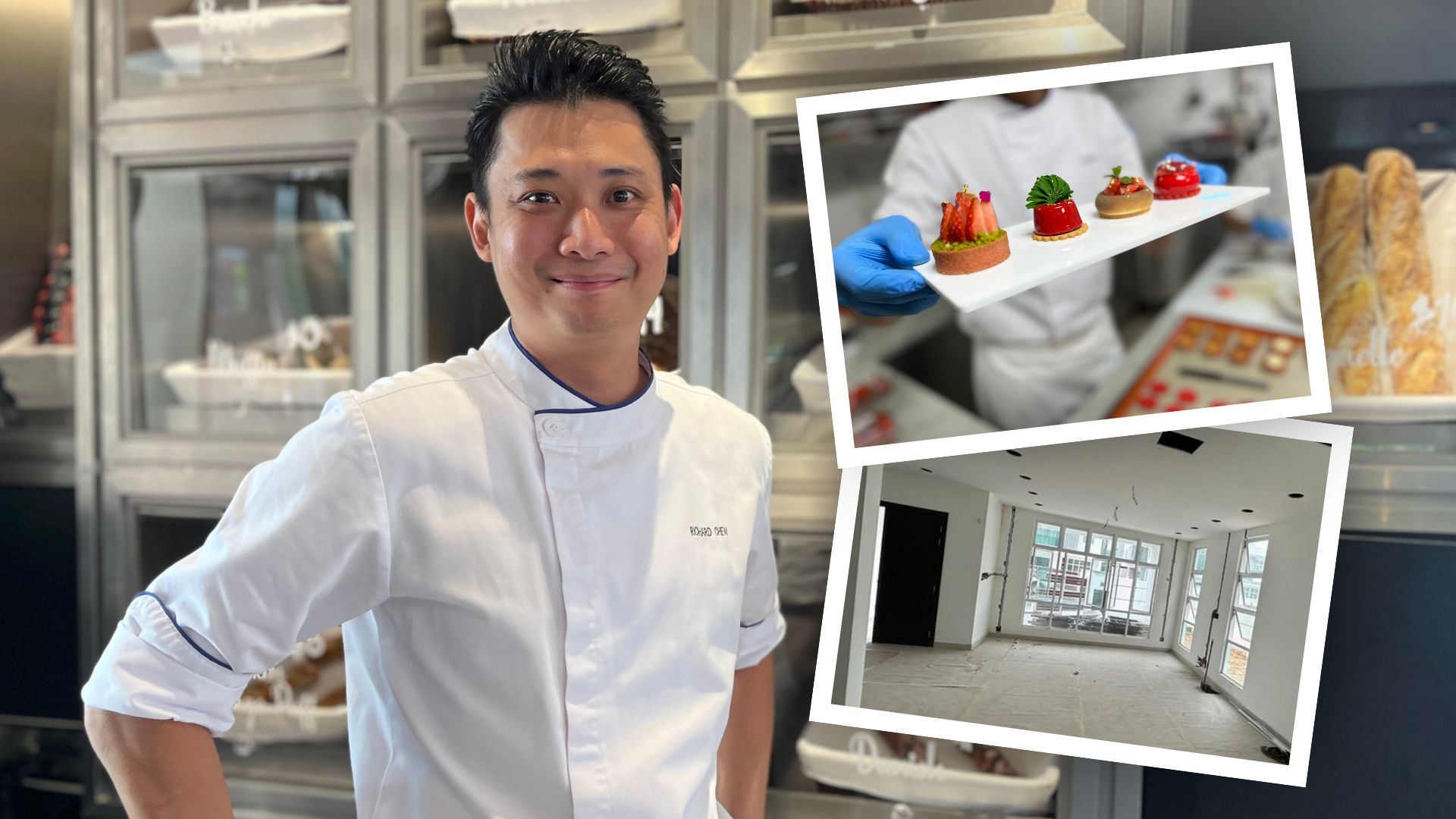Call Of The Wild: This Man, His Father And His Daughter Are All Zookeepers
A great love for caring for wildlife runs in the family of one Singaporean man: Gurusamy Permalo.
The Senior Curator, Mandai Wildlife Group, has been with Night Safari (which celebrates its 30th anniversary this year) since then-Prime Minister Goh Chok Tong launched it on 26 May 1994. Gurusamy's inspiration? His father, a keeper with Singapore Zoo to this day.
“He used to tell me stories about the animals he cared for. There were animals that had been rejected by their mums, so he got to nurse them and watch them grow up. There was so much joy in what he did, so much love that he showed. Hearing his stories nurtured some kind of a bond in me with animals and nature,” recalls Gurusamy, who has, in turn, inspired his offspring.
“My children have always loved animals, and in fact, one of them was so passionate that she decided to join me. She is now working with primates at River Wonders,” he says. “This passion for animals has kept my family alive, including my children. It’s our way of serving nature and helping animals and wildlife thrive.”
Ahead of Father’s Day (16 Jun) as well as to commemorate Night Safari’s 30th anniversary, and Gurusamy’s three decades with the nocturnal wildlife park, we speak to the 53-year-old about his long-standing career, his bond with nocturnal creatures, and the longevity of elephants.
 Gurusamy Permalo, Senior Curator, Mandai Wildlife Group. | IMAGE: MANDAI WILDLIFE GROUP
Gurusamy Permalo, Senior Curator, Mandai Wildlife Group. | IMAGE: MANDAI WILDLIFE GROUP
Did you expect to be with Night Safari for three decades? And what are some highlights?
Actually I did not expect it, though I would say, in a way, I also did expect it, because it was my dream to work here. The 30 years have just flown by like it’s just another day because you don’t really feel like you’re coming to work. It’s just like my other home, you know?
There have been so many highlights, especially seeing Night Safari grow over the years. When we first started, the keepers were not seen by the guests because we wanted to [just] show the animals in nature, in their habitats. But as time went by, things changed, and we keepers started meeting guests, talking to them, telling them about Night Safari’s conservation work, educating them about how they can also protect animals, and so on.
We have welcomed many new animals in the last 30 years too, including many special newborns.
But over the years, one thing has not changed – and that’s our care for the animals. We always give them the best care and quality of life possible, the most comfortable exhibits, and we focus a lot on animal enrichment so that our animals stay active, stimulated and healthy.
 IMAGE: MANDAI WILDLIFE GROUP
IMAGE: MANDAI WILDLIFE GROUP
What are some of the major changes you’ve witnessed in the Night Safari since 1994?
We now have many activities to engage guests and to make sure their visit is special and memorable, like bringing out animals to meet guests. Many of our guests have never come that close to wildlife before, and we are always so thrilled to see their excitement.
It’s also an opportunity for us to tell them about the conservation work we do to protect these beautiful creatures and educate them about how they too can play a part in protecting animals.
Our Creatures of the Night amphitheatre has also been expanded and the presentation has changed, but its purpose is still the same – to show our guests what our animals are capable of and to teach them how we can come together to protect them.
We also have four tram stations instead of just one, and major events like the Mandai Wildlife Run, which takes runners through the park.
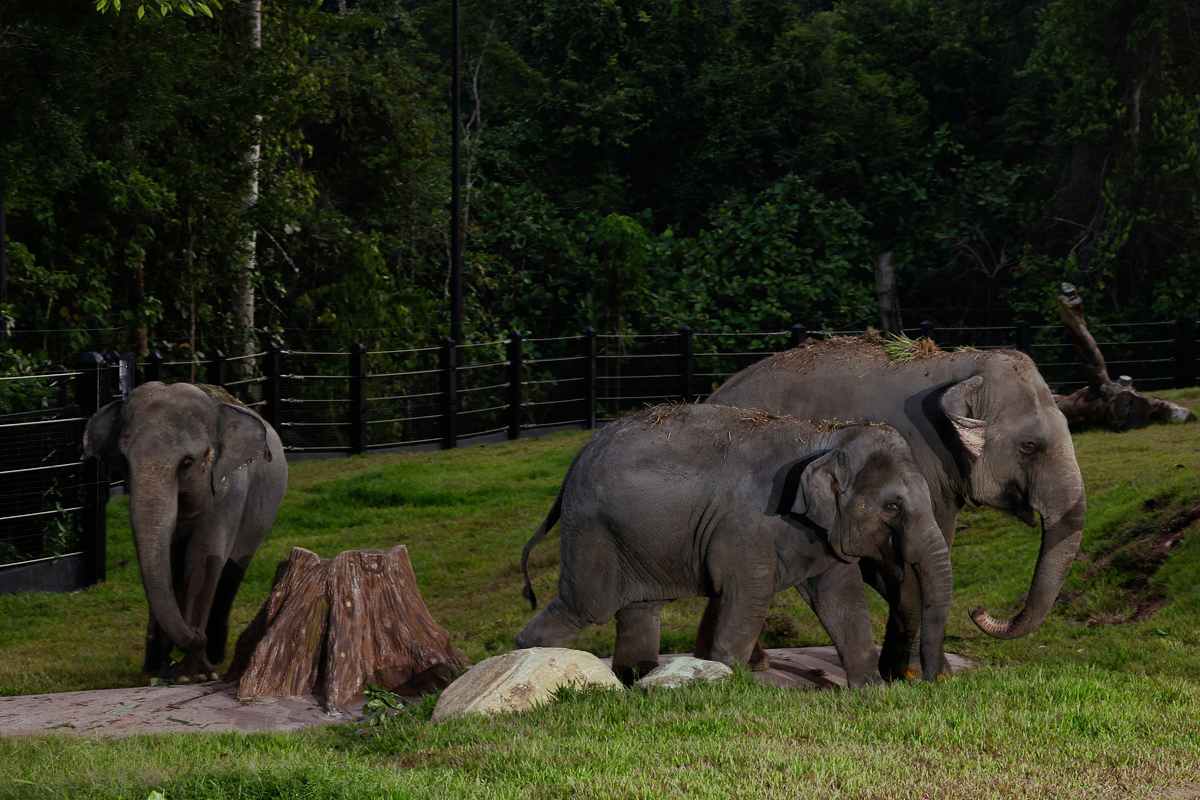 IMAGE: MANDAI WILDLIFE GROUP
IMAGE: MANDAI WILDLIFE GROUP
Which creature has been with you all the way since Night Safari opened?
The elephants, though I have not worked with them personally. The animals I work with have a lifespan shorter than 30 years even under human care. They usually live a maximum of 20 years with us, and that’s considered long for them. In their native habitats, they would’ve gone much earlier.
Have you developed any special bonds with the nocturnal animals?
Back when I was a junior keeper, yes I did. I looked after mouflons and some of them were born under my care. One of them was totally black, completely different from the others. I took care of this young mouflon and integrated it into the group. It was challenging, but when I saw the animal all grown up and getting along with the group, it was so fulfilling. Indian rhinos were also among the many other animals I bonded with.
The animals can recognise their names, and even our voices. Before we reach their facilities, they know we’re coming and they call out to us. It’s very beautiful.
We use operant conditioning with our animals, where we teach them how to get used to medical checks with positive reinforcement. This way, it’s easier and less stressful for routine health checks on their eyes and paws, or when we weigh them.
 Gurusamy stops to look at African White Lions Sipho and Mandisa. | IMAGE: MANDAI WILDLIFE GROUP
Gurusamy stops to look at African White Lions Sipho and Mandisa. | IMAGE: MANDAI WILDLIFE GROUP
Do any of the animals have interesting quirks?
The carnivorous cats are very special because they can hear sounds from great distances and they can be quite playful. Sometimes they stalk us – they’ll hide in the bush, and when we approach their exhibit, they pounce. It gives us a shock, because we’re busy working, and all of a sudden there’s this big cat next to us!
Other times, they’ll want their favourite food, and if we don’t give it to them, they will not touch their food. They’ll wait until we give them what they want. The animals can be so mischievous sometimes. There are so many beautiful moments like these at work every day.
What has been your biggest life lesson from the work that you do?
I have learnt a lot from the animals I care for. A lot of studying, even observing body languages of animals because they can’t speak. It’s very interesting, because every animal has its own character. They respond to you differently and they send messages to you that tell you whether they are happy or hungry or sick. They have so many things to tell us, and all of these, we must read through their body language.
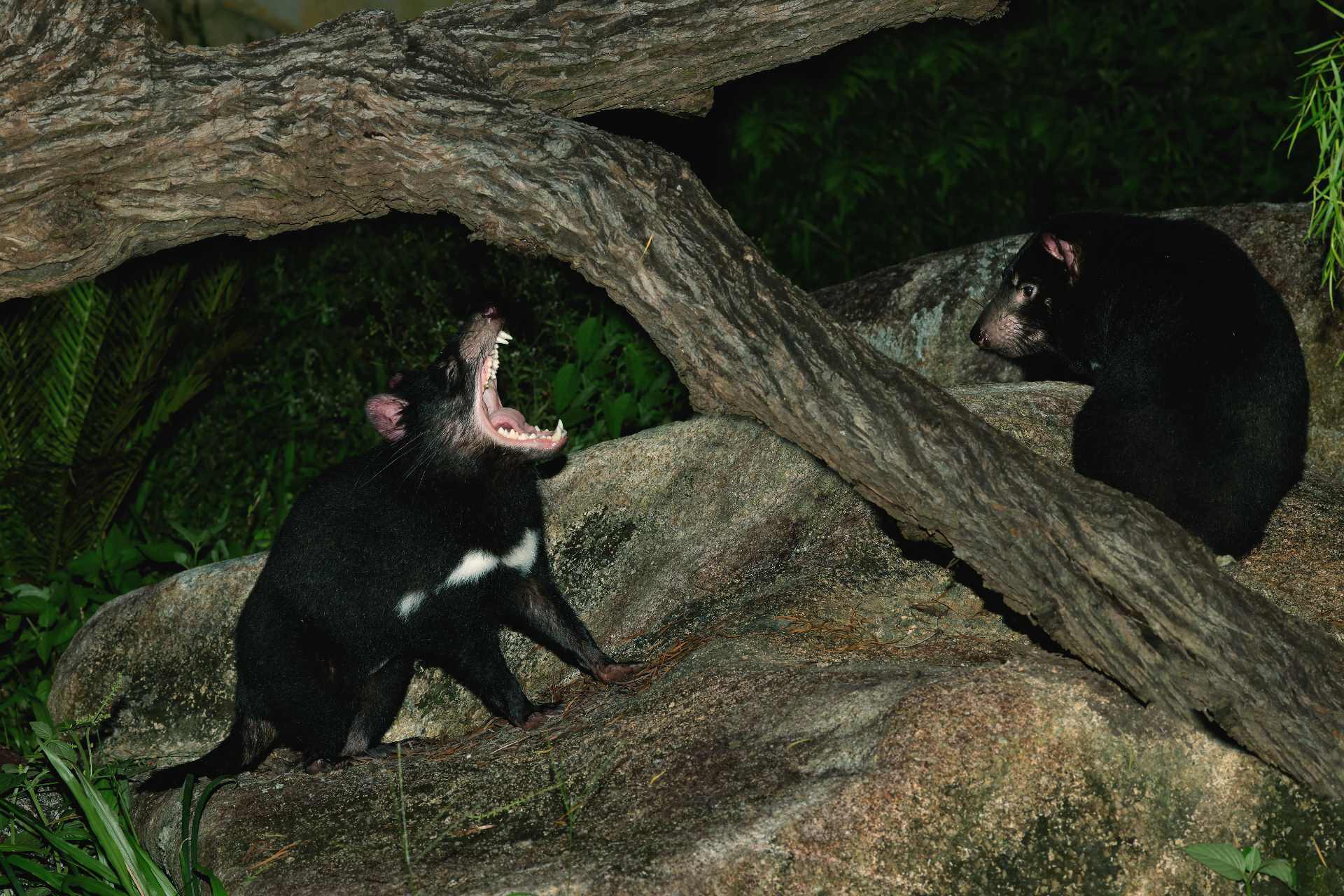
 Gurusamy drops by the Tasmanian Devil exhibit on one of his park patrols. | IMAGES: MANDAI WILDLIFE GROUP
Gurusamy drops by the Tasmanian Devil exhibit on one of his park patrols. | IMAGES: MANDAI WILDLIFE GROUP
Nowadays, it’s not easy being at the same job for more than two or three years. What has kept you at Mandai for so long?
My passion and love for the animals! It’s something I’ve had since young because I practically grew up at the zoo. The zoo was my playground, I spent so much time there as a child, and my love for animals slowly built up.
When I was schooling, there were part-time positions available. So, just to earn that extra income, I joined as a volunteer, then became a part-timer. That was how I started working with the animals.
I enjoyed learning about the animals’ characters and behaviours, taking care of them, feeding them, cleaning up after them. Somehow, they tend to respond to you if you’re with them daily. You grow attached to them, and that bond held me.
And yeah, here I am, 30 years on!
For the latest updates on Wonderwall.sg, be sure to follow us on TikTok, Telegram, Instagram, and Facebook. If you have a story idea for us, email us at [email protected].







